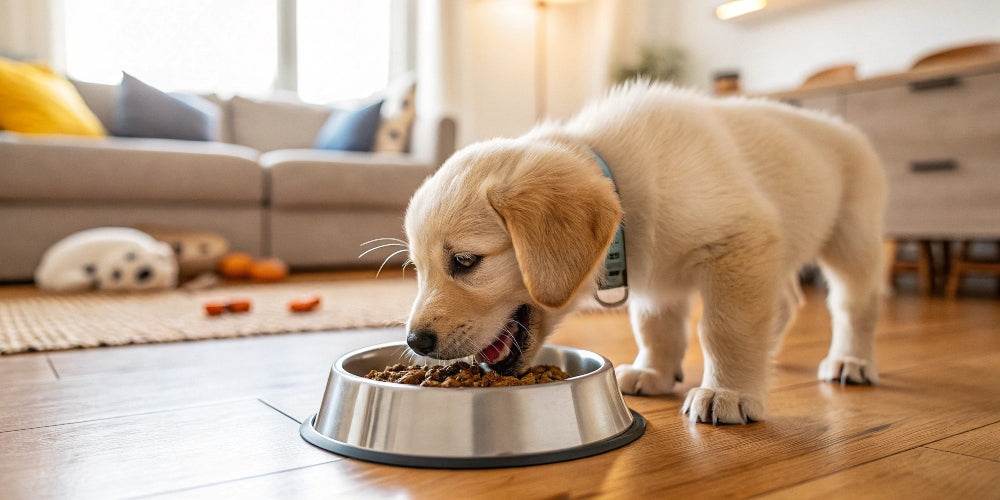
When to change from puppy to adult food?
The moment a puppy comes into the home, whether it's a dog or a cat, it's time to learn what its diet should be like.
One of the things to keep in mind is that The diet will vary depending on your ageAs your pet grows older, we'll need to adapt the type of food we provide to their life stage: puppy, adult, or senior.
As an initial starting point, it should be noted that at Arquivet we always recommend provide natural food, as it will benefit our pet in every way, not only providing the nutrients they need and a balanced diet, but also helping to maximize their lifespan. Of course, diet isn't the only factor that affects longevity, but it is one of the key points to consider.
Benefits of a natural diet
Just as healthy eating is beneficial for people, there are also many advantages to providing natural food for cats or dogs. Some of these are:
- Overweight control: Natural food for dogs—and also cats—is made with ingredients that are typically high-quality and naturally sourced, helping them obtain all the nutrients they need in a balanced and proportional manner, thus avoiding overfeeding and, therefore, the likelihood of becoming overweight.
- Taking care of your health: It helps maintain your physical fitness by preventing the onset of certain diseases. It will also be very beneficial for your digestive cycle, your skin, and your coat, which will look shinier and stronger.
- Dental care: Natural food is a perfect ally for reducing the formation of tartar and plaque on our pet's teeth, especially dry food, which promotes a kind of brushing while the animal eats.
- Improves the immune system: When we feed our furry friends correctly and with quality food, we promote their health and, consequently, their immune system. A good diet will help prevent many diseases.
- Happiness: Our pet will be more active, as this type of diet will help them have all the energy they need. Natural food, along with plenty of pampering and regular exercise, will be the perfect recipe for a life full of happiness.
What is the difference between puppy and adult food?
At first glance, the main difference will be the croquette sizeThis one is smaller in puppy food, as this way we will prevent them from choking.
On the other hand, and making a more exhaustive analysis of the composition of the food, Puppy dog food, as a rule, has more calories Since during the first months of a dog's and cat's life, the caloric expenditure and energy levels required are greater, even more so for large breeds.
In this sense, Puppy food will have ingredients that provide more energyYou'll normally find more protein and fat than in adult dog food, as this will promote strong muscle and joint growth.
It will also be important for them to incorporate a significant vitamin-mineral balance, as this will strengthen the immune system, promoting the protective barriers of the skin, hair, and mucous membranes.
Therefore, the best puppy food will be one that has a high level of protein and fat for proper development and provides all the minerals and vitamins necessary for a strong and healthy immune system, thus enjoying good health.
When should I change from puppy to adult food?
Something to keep in mind is the amount of food that each type of animal and breed requires, since depending on this, they will need more or less food for their proper development.
Regardless of the above, the change from puppy to adult food can be done depending on the size of the breed:
- Small breeds: Their development and growth are faster than other larger dogs. Typically, puppies stop growing around 9-12 months, at which point we can switch to a different food and reduce the amount of food they eat.
- Medium breeds: Those dogs, such as a German Shepherd, stop growing at around 12-15 months of age, at which point we can change their diet.
- Large breeds: All larger furry animals take longer to develop. In these cases, a change in feed would not be necessary until they are 18-24 months old.
However, it's best to consult a veterinarian, as each dog's case is unique, and these guidelines only serve as a general idea of what we could do.
Additionally, aside from dry food, there are other types of food, such as wet food, that can be considered when feeding our furry friend. This type of food is also age-appropriate, and consequently, canine health professionals have developed recipes to provide everything our dog needs for their daily life.


